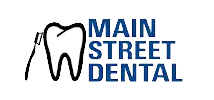Diabetes is a disease that affects how the body uses blood sugar. Your body needs glucose to function properly, but too much or too little sugar in your body can have serious health consequences. Over time, high blood sugar levels can lead to health problems such as heart disease and stroke. Low blood sugar levels can cause dizziness and cause people to pass out.
Effects of Diabetes on Oral Health
Diabetes can affect your entire body, including the oral cavity. The salivary glands produce less saliva to protect the teeth from decay when the blood sugar levels are high. Without enough saliva in the mouth, it becomes easier for bacteria to grow, and this can lead to oral health problems.
A dry mouth is one of the most common effects of diabetes on your oral health. This can cause discomfort and make eating and chewing foods difficult. You may also notice an unpleasant taste in your mouth.
When sugar enters the mouth through food, drinks, or medications, it feeds plaque bacteria. As these bacteria break down the sugar, acid is produced. Over time, this acid eats away at the enamel of your teeth, leading to cavities. In addition, the high glucose levels in saliva can multiply the acid and lead to faster tooth decay. People with uncontrolled diabetes are at high risk of getting cavities.
Uncontrolled high blood sugar is associated with gum disease as well. Gum disease, also called periodontal disease, causes inflammation and irritation of the gums. This can progress to bleeding, receding gums and even tooth loss. If left untreated, gum disease also can increase your risk of stroke and heart disease.
Oral Health Matters
Good oral hygiene habits can help protect your gum health and reduce the risk of problems such as gingivitis and periodontitis. These conditions cause your gums to pull away from your teeth and create pockets where bacteria and infections can thrive. Brushing and flossing regularly removes the bacteria from the mouth and helps you keep harmful bacteria from getting into your gums. This will help prevent infections and ward off more serious problems like tooth loss.
A dentist will be able to measure your level of plaque buildup and examine the health of your gums to determine if you have any signs of gingivitis or other forms of periodontal disease. If there has been damage as a result of not managing your oral health properly, the dentist can recommend an appropriate treatment to restore your smile to health. These can include professional teeth cleanings, deep cleanings, and other treatments if necessary.
For the best dental care tailored to your unique needs, visit Main Street Dental at 3195 S Main St Ste 225, South Salt Lake, UT 84115, or call (801) 467-2255.
More Blog Posts
Location
3195 S Main St Ste 225,
South Salt Lake, UT 84115
Office Hours
MON - FRI9:00 am - 5:00 pm
SATBy appointments only
SUNClosed






